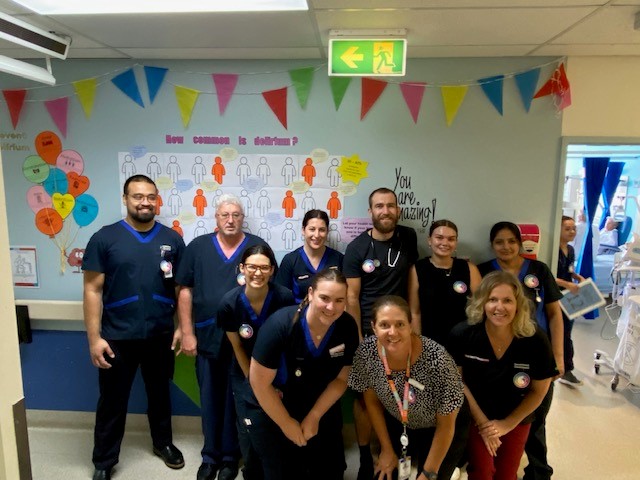
Delirium is a serious health issue, particularly for the ageing communities across Wide Bay.
World Delirium Awareness Day on March 13 provided an opportunity for the Eat Walk Engage team at Bundaberg hospital to highlight the significant impact delirium can have on patients, families, and the healthcare service.
On World Delirium Awareness Day, Bundaberg Hospital staff, patients and families got involved with interacting with displays in the foyer and in the wards, engaging with staff to learn more about delirium prevention.
Staff also engaged in an education session and a very competitive staff quiz.
Eat Walk Engage Facilitator Jo Tully shared her thoughts on the successful event.
“Many visitors to the hospital commented on the excellent displays with many expressing that they dd not previously know about the risks of delirium,” she said.
“Staff on the ward enjoyed the displays, education and quiz.
“Staff commented that they learned some new delirium facts which will help with preventing and detecting delirium.”
A key focus on the day was ensuring people recognise delirium as a state of mental confusion that starts suddenly and is caused by a physical condition of some sort.
When experiencing a delirium, you may not know where you are, what time it is, or what’s happening to you. It is also called an 'acute confusional state'.
Medical problems, surgery and medications can all cause delirium. It often starts suddenly and usually lifts when the condition causing it gets better. It can be frightening – not only for the person who is unwell, but also for those around him or her.
There is no ‘cure’ for delirium, but there are many prevention strategies which have been proven effective.
Hospital acquired delirium is very common with approximately 30-40% of inpatients over 65 years developing delirium during a hospital admission.
Hospital acquired delirium can be prevented in many cases, through good nutrition and hydration (EAT), early mobilisation (WALK) and meaningful cognitive engagement (ENGAGE).
The Eat Walk Engage program has been introduced at Bundaberg Hospital to address this significant inpatient health issue.